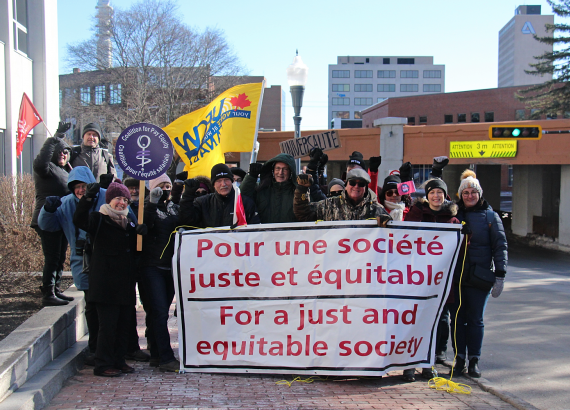A just and equitable society is a human-centered society where solidarity ensures that the common good is more important than the individual good.
A just and equitable society is one in which everyone feels secure, has their basic needs met and can take their place in the community.
A just and equitable society is one in which there is no discrimination, regardless of language, gender identity, gender expression, origin, skin colour, sexual orientation, financial status, age, disability, religious beliefs, or political convictions.
A just and equitable society is one that promotes fair wages and working conditions for all its workers. It recognizes their right to organize and bargain collectively over their working conditions.
A just and equitable society is one in which social protection and public services are funded in a way that allows all people to live decently.
A just and equitable society is one that prioritizes and supports sustainable development for future generations.
A just and equitable society is one in which taxation systems are progressive and consider each person's ability to pay, and in which tax avoidance and tax havens no longer exist.
A just and equitable society is one that is committed to taking action for true reconciliation with Indigenous communities.
